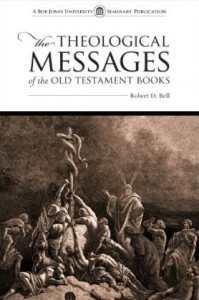Theology
“Causes Us to Triumph” vs “Triumphs Over Us”
There’s some difference of opinion on how 2 Cor 2.14 should be translated:
Christians and Debt: “Owe no man any thing”
The phrase “owe no man any thing” (Rom 13.8) is commonly misquoted as a prohibition on incurring financial debt. This verse is often twisted to mean, “Don’t put that TV on your credit card,” “Only buy used cars,” and “Don’t borrow money from your relatives.” (Strangely, those who misuse it in this fashion almost never take it to mean, “Don’t sign a mortgage to buy a house…”)
Names of Jesus That Give Us Hope: Isaiah 9:6
O Holy Night Lyrics: A Hymn of Advent Expectation
When “hate” doesn’t mean “hate”
One of the most startling verses in Scripture is Jesus’ warning in Luke 14.26:
God spared the city for one righteous man
Genesis 18.22-33 challenges me every time I read it. On one hand, I admire Abraham’s tenacity and unashamed persistence in pleading for Sodom and Gomorrah. On the other hand, I’m amazed that God listens and agrees to Abraham’s request every time – what mercy! Part of me wonders why Abraham didn’t press for mercy on account of five or even one righteous man. He was on a roll – why quit at ten? My curiosity isn’t currently satisfied: Genesis doesn’t tell us, and we shouldn’t get too creative about inventing a reason.
The Death of Christ in the New Testament
I recently taught a two-week series on the New Testament’s teaching about the death of Christ. The notes are available here: The Death of Christ in the NT.
The Book of Naomi
As we start reading the book of Ruth, chapter 1 points us to one person: Naomi, and to one characteristic: emptiness.
Review: The Theological Messages of the Old Testament Books
 Dr. Robert Bell’s book The Theological Messages of the Old Testament Books contains a wealth of information and serves as a useful resource for Bible students at both the intermediate and advanced levels. The book begins with an introduction to the discipline of biblical theology and an explanation of the book theology method utilized in the content chapters. Following this introduction, Bell presents the theological messages of the Old Testament books in thirty-three chapters (combining Judges & Ruth; 1 & 2 Samuel; 1 & 2 Kings; 1 & 2 Chronicles; and Obadiah, Joel, & Zephaniah). The book concludes with four appendices (bibliography of book theologies, sermon on a theological theme, sermon on a book theology, and a chart of each book’s theme) and an author index.
Dr. Robert Bell’s book The Theological Messages of the Old Testament Books contains a wealth of information and serves as a useful resource for Bible students at both the intermediate and advanced levels. The book begins with an introduction to the discipline of biblical theology and an explanation of the book theology method utilized in the content chapters. Following this introduction, Bell presents the theological messages of the Old Testament books in thirty-three chapters (combining Judges & Ruth; 1 & 2 Samuel; 1 & 2 Kings; 1 & 2 Chronicles; and Obadiah, Joel, & Zephaniah). The book concludes with four appendices (bibliography of book theologies, sermon on a theological theme, sermon on a book theology, and a chart of each book’s theme) and an author index.How Christ was “made perfect”
Christ is perfect: he always has and always will be perfect. Yet, the author of Hebrews says that Christ become the cause of our eternal salvation by “being made perfect” (τελειωθεὶς). How are we to interpret this difficult phrase?